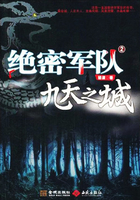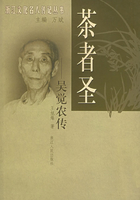Against the professional player I say nothing; he is a public entertainer, like any other, and by his skill in his particular sport he at least fulfills the first social duty of man—that of supporting himself and his family by his own legitimate exertions. But what is to be said of the crack amateur? To me he seems one of the most contemptible of mankind. He earns no money, but devotes himself for the mere selfish pleasure of the thing, to some game, which he plays day in day out; he breaks down the salutary distinction between the amateur and the professional; eventually his skill deserts him, and he leaves behind him nothing that is of service to his fellow men—not a brick laid, not an acre ploughed, not a line written, not even a family supported and educated by his labor.
It is true that he has provided entertainment for a certain number of persons, but he has never had the pluck to submit himself to the test by which we demand that every entertainer should justify his choice of a calling—the demonstration of the fact that the public is willing to pay him for his entertainment. And, when his day is over, what is left, not even to the world, but to himself? Nothing but a name that is at once forgotten, or is remembered by stout gentlemen in clubs.
The playing of games, certainly, is a thing which is not worth doing well. But that does not prove that it is not worth doing at all, as the proverb would, by implication, persuade us. There is nothing more agreeable and salutary than playing a game which one likes, and the circumstance of doing it badly interferes with the pleasure of no real devotee of any pastime. The man who minds whether or not he wins is no true sportsman—which observation is trite, but the rule it implies is seldom observed, and comparatively few people really play games for the sheer enjoyment of the playing. Is this not proved by the prevalence and popularity of handicaps? Why should we expect to be given points unless it be that we wish to win by means other than our own skill?
“Ah! but,” my reader may say, “the weaker player wants to receive points in order that he may give the stronger one a better game.” Really, I do not believe that that is so. Possible, sometimes, a strong and vainglorious player may wish to give points, in order that his victory may be the more notable. But I do not think that even this is the true explanation. That, I suspect, was given to me the other day by the secretary of a lawn-tennis tournament, in which I played. “Why all this nonsense of handicaps? Why not let us be squarely beaten, and done with it?” I asked him. “Because,” he replied, “if we did not give handicaps, none of the less good players would enter.” Is that not a confession that the majority of us have both realized the true value doing a trivial thing badly, for its own sake, and must needs have our minds buoyed and cheated into a false sense of excellence?
Moreover it is not only such intrinsically trivial things as games that are worth doing badly. This is a truth which, oddly enough, we accept freely of some things—but not of others—and as a thing which we are quite content to do will let me instance acting. Acting, at its best, can be a great art, a thing worth doing supremely well, though its worth, like that of all interpretative arts, is lessened by its evanescence. For it works in the impermanent medium of human flesh and blood, and the thing that the actor create—for what we call an interpretative artist is really a creative artist working in a perishable medium—is an impression upon, an emotion or a thought aroused in, the minds of an audience, and is incapable of record.
Acting, then, let me postulate—though I have only sketched ever so briefly the proof of my belief—can be a great art. But is anyone ever deterred from taking part in amateur theatricals by the consideration that he cannot act well? Not a bit of it! And quite rightly not, for acting is one of the things about which I am writing this essay—the things that are worth doing badly.
Another such thing is music; but here the proverbial fallacy again exerts its power, as it does not, for some obscure and unreasoning discrimination, in acting. Most people seem to think that if they cannot sing, or play the piano, fiddle, or sackbut, admirably well, they must not do any of these things at all. That they should not indiscriminately force their inferior performances upon the public, or even upon their acquaintances, I admit. But that there is no place “in the home” for inferior musical performances, is an untruth that I flatly deny.
How many sons and daughters have not, with a very small talent, given their parents—and even the less fondly prejudiced ears of their friends—great pleasure with the singing of simple songs? Then one day there comes to the singer the serpent of dissatisfaction; singing lessons are taken, and—if the pupil is of moderate talent and modest disposition—limitations are discovered. And then, in nine cases out of ten, the singing is dropped, like a hot penny. How many fathers have not banished music from their homes by encouraging their daughters to take singing lessons? Yet a home may be the fresher for singing that would deserve brickbats at a parish concert.
I may pause here to notice the curious exception that people who cannot on any account be persuaded to sing in the drawing-room, or even in the bath, will without hesitation uplift their tuneless voices at religious meetings or in church. There is a perfectly good and honorable explanation of this, I believe, but it belongs to the realm of metaphysics and is beyond my present scope.















